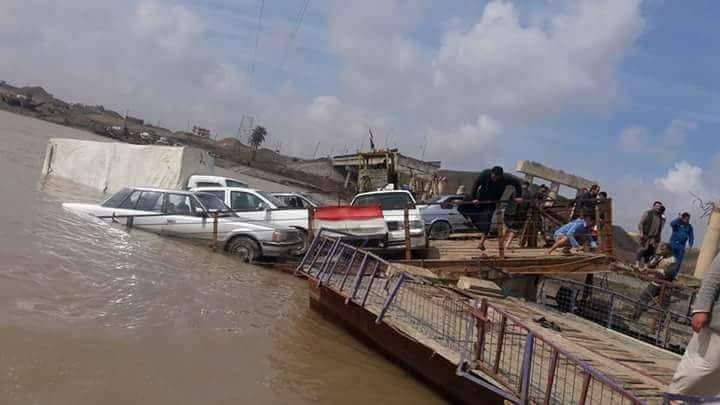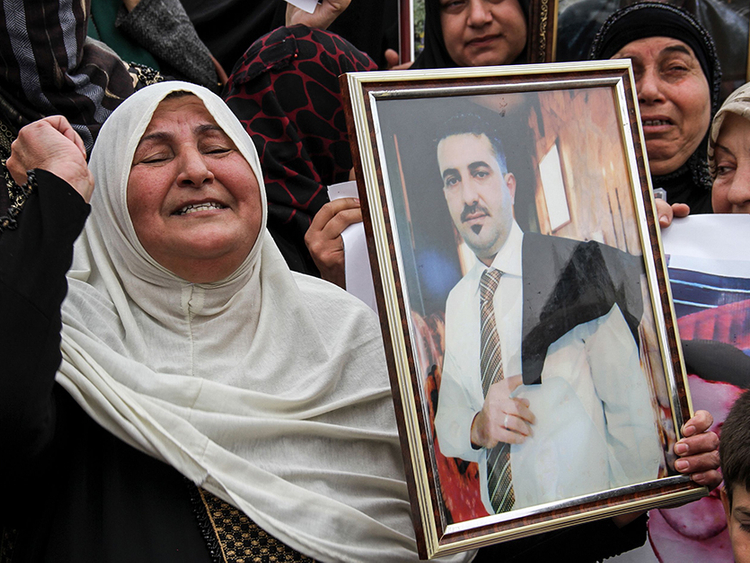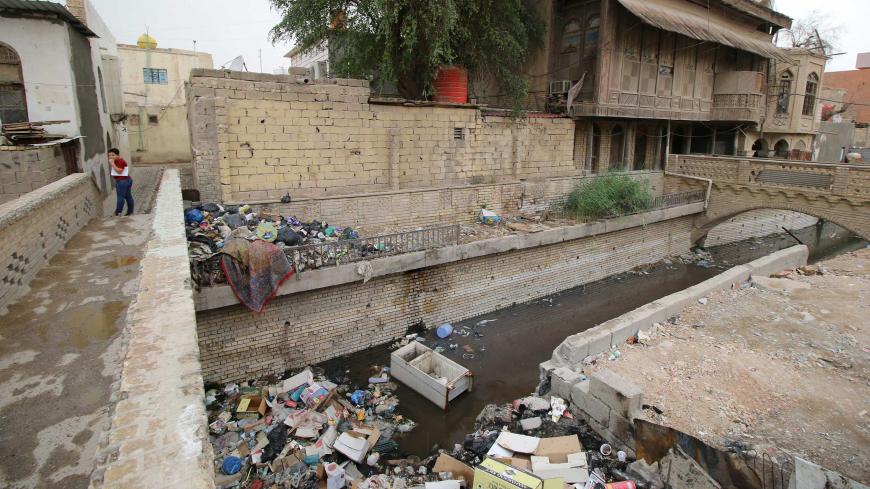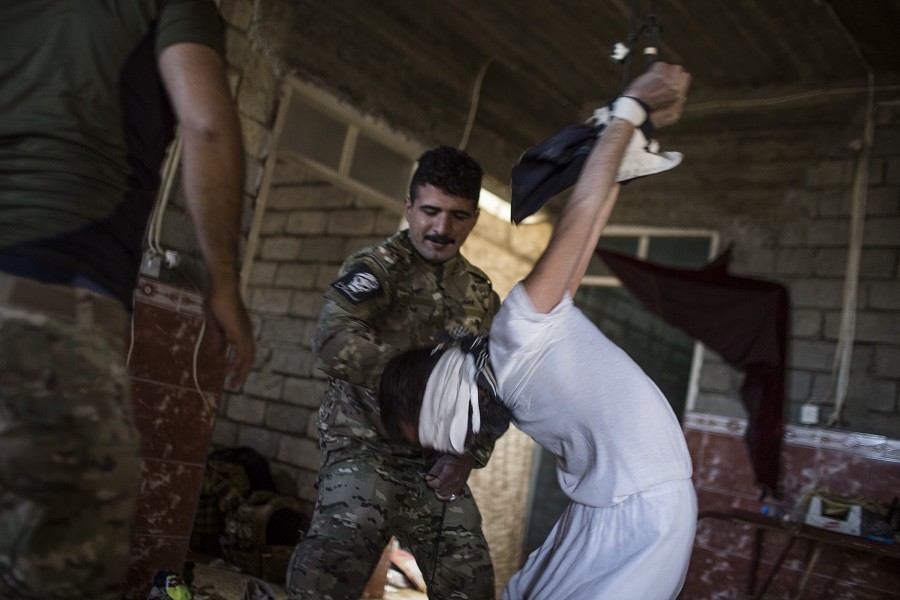The Iraqi Observatory for Human Rights said that about 80 thousand citizens living in the left coast of Al-Sharqat district suffering from communication difficulty with the outside world as a result of area isolation from the judicial center due to lack of bridges linking the two banks of the city.
The monitoring network at the Iraqi Observatory for Human Rights said that several incidents led to boat sinking carrying citizens from the left coast of Al-Shirqat district to the right side of the city.
On February 27, eight cars and more than 40 civilians drowned in the river as they were crossing before they were rescued by people.
The monitoring network said on the Last of December, a boat carrying six college girls sank as they were heading to the education college in the right side of the city, killing one of them, while other girls were rescued by individuals and suffered from cold due to getting wet.
The monitoring network also added "The suffering of civilians is worsening, especially the sick, the elderly and the children who are trying to cross the Tigris River to reach one of riverbanks, particularly with low temperatures out there."
Amna Hameed al-Jubouri, a member of Salah al-Din Provincial Council, head of the civil society organizations committee From Al-Sharqat and Hawija district expressed "The use of the bridge for the purpose of citizens crossing is no less significant from its importance for military purposes usage after the security forces erected a bridge at the beginning of last September, which was utilized for the security forces crossing involved in liberation of ISIS but the latter removed it three months ago. "
A member of the provincial council declared that "the concrete bridge between the two banks of the Tigris River in the city of Sharqat endured severe damage as a result of bombing by the international coalition forces during the war on ISIS.”
Dr. Abdelfattah, a doctor working at Sharqat Hospital expressed "The hardship of transferring patients from the left coastal area to the hospital city , especially women who are in a state of birth, senior citizens, people with disabilities or who have fractures in their limbs is bad, due to their transformation in more than one car and a necessity of walking in some places.
Ahmad al-Jumaili, an employee working in the al-Sharqat district in the center of the city said "There are serious obstacles in getting to my workplace, every day I come out of my place in dirty clothes, since I have to ride small boats. It's the only way to cross the river for more than (500) meters".
Amjad Ihsan, an eyewitness to some incidents, said "There have been incidents of some boats that move citizens from the left coast to the right side of the city of Shirqat and vice versa, the coup of some of these boats are primitive, causing the sinking of some citizens and physical damage to others before their rescue".
Alaa Ibrahim, basic education college girl who arrives to Al-sharqat from the left coast every morning said, "She is thinking of postponing the current college year because of her fear to cross the river every day through small boats that might be drowning".
The Iraqi Observatory for Human Rights demanded the Iraqi government to expedite the construction of a floating bridge linking Al-Sharqat two sides of the city until the repair of the concrete bridge is complete, in addition to providing a rescue center that includes divers for the aim of assisting citizens in case of river boats rolling over.




